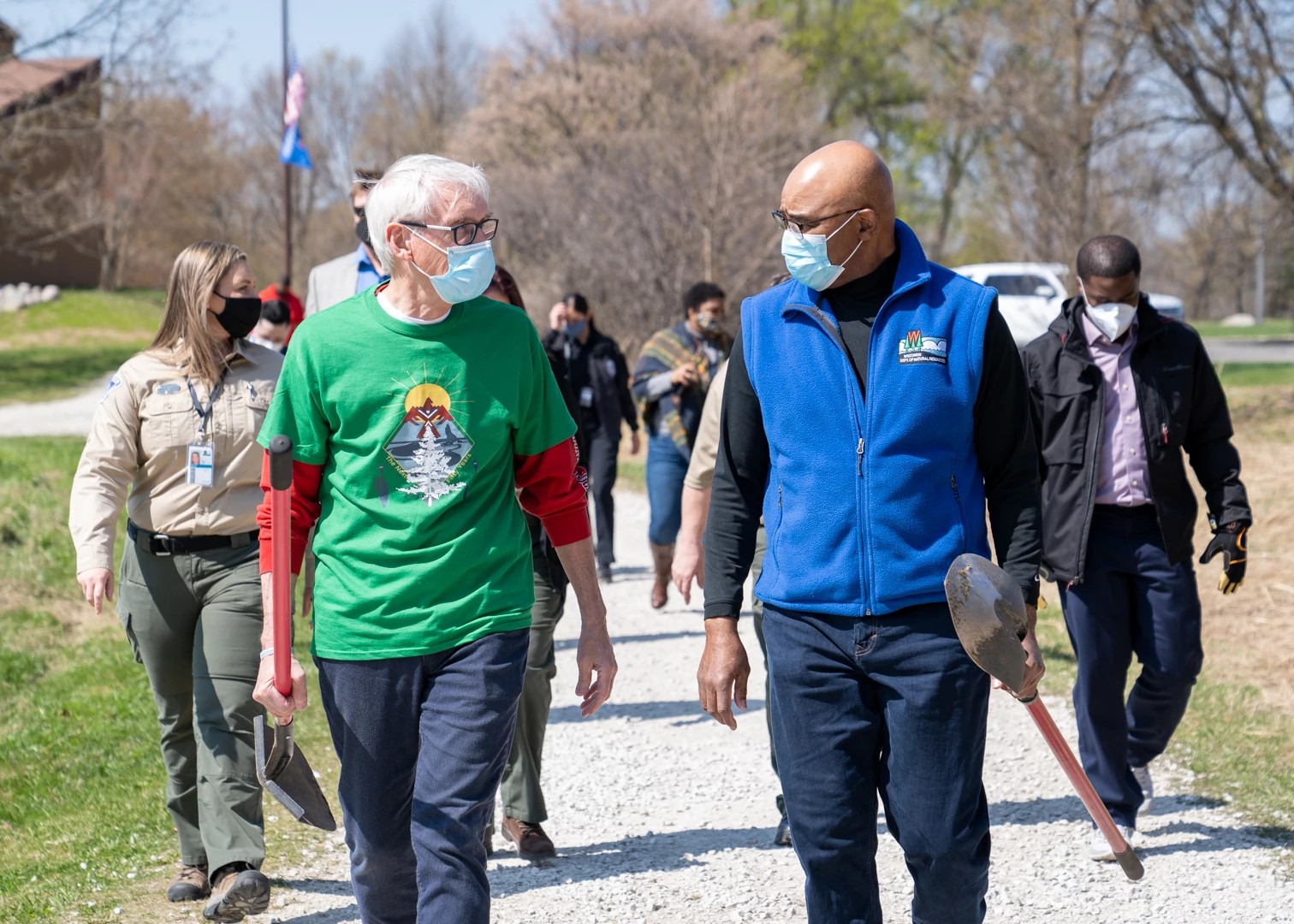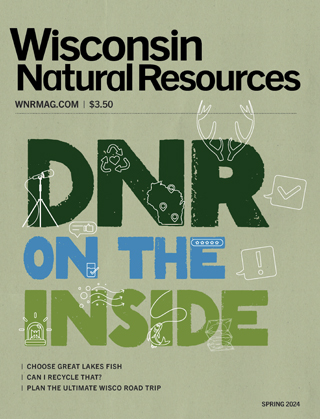Contact: DNR Office of Communications
DNRPress@wisconsin.gov
Wisconsin Joins Trillion Tree Movement
Gov. Evers Pledges Wisconsin Will Plant 75 Million Trees By 2030
 Gov. Tony Evers (left) and DNR Secretary Preston Cole (right) on their way to plant trees at Havenwoods State Forest in Milwaukee on Earth Day.
Photo credit: Wisconsin DNR
Gov. Tony Evers (left) and DNR Secretary Preston Cole (right) on their way to plant trees at Havenwoods State Forest in Milwaukee on Earth Day.
Photo credit: Wisconsin DNR
MADISON, Wis. – The Wisconsin Department of Natural Resources (DNR) is pleased to announce the spotlight is on Wisconsin’s forests this Arbor Day.
The State of Wisconsin celebrated Earth Day 2021 with Gov. Tony Evers signing an Executive Order pledging to protect and restore Wisconsin’s forestland by conserving 125,000 acres and planting 75 million trees by 2030 as part of the U.S. Chapter of the Global Trillion Trees Initiative.
When fully realized, the state pledge will result in 28.8 million metric tons of carbon dioxide stored over the next 50 years. That is equivalent to the amount of carbon dioxide produced by six million passenger vehicles for a year.
The Executive Order directs the DNR to implement the pledge in partnership with public, private and non-governmental partners on behalf of the State of Wisconsin.
Forests are woven into the culture of Wisconsin where 17 million acres of forestland cover nearly half the state and are vital to our social, ecological and economic well-being. Both the wide variety of forest-based recreational activities enjoyed by the public and the products made from our forests are crucial to the state and local economies.
Forest products contribute $24.4 billion annually to Wisconsin’s economy, and forestry is the largest employer in seven counties across the state. Ensuring that these benefits continue for future generations is a true public-private partnership in Wisconsin where nearly 60% of the forestland is owned by individuals and families. Forest landowners, industry, conservation groups and many other organizations collaborate, under the guidance of Wisconsin’s State Forest Action Plan, to sustain and grow the benefits that forests offer.
In addition to safeguarding water resources, providing wildlife habitat and supporting rural economies, maintaining healthy forests is also essential to mitigating climate change. In order to retain forest cover, the state plans to use the Knowles-Nelson Stewardship Fund to continue acquiring forest land for state and non-governmental entities. Additionally, the stewardship fund and other funding sources will be used to obtain conservation easements, preventing the conversion of forestland to other land uses.
Millions of trees will be planted each year on public and private lands in rural and urban settings with support from state programs. In most U.S. cities, the distribution of urban tree canopy disproportionately benefits high income neighborhoods. A tree planting program targeting low-income urban communities would help to address inequity.
Urban tree planting combined with enhanced tree maintenance can substantially increase urban forest carbon storage and deliver additional carbon mitigation benefits through energy savings. Additionally, hundreds of thousands of trees will be provided by our state reforestation program, which supplied Wisconsin landowners with more than 1.6 billion high-quality, native seedlings for reforestation purposes since 1911. We also provide free tree seedlings for Wisconsin fourth-grade students to plant in honor of Arbor Day each year.
The DNR will continue its efforts to manage existing forestland, ensure that current forests stay healthy and improve regeneration opportunities. The State of Wisconsin has more than six million acres of public and private forestland enrolled in independent, third-party certification programs. These programs help ensure forests sustain environmental, social and economic benefits.

